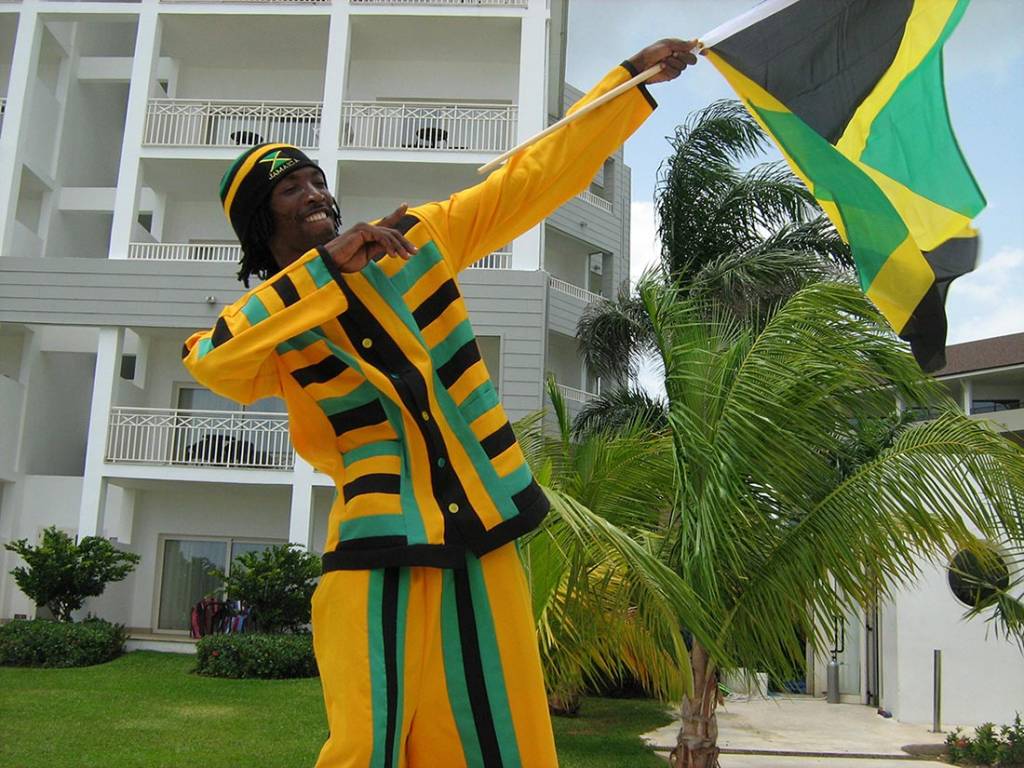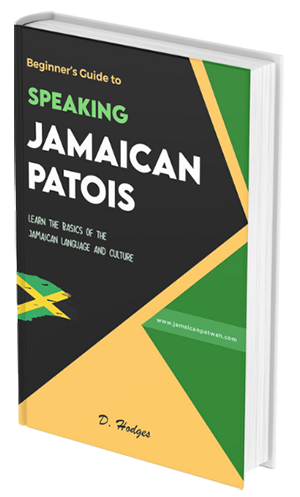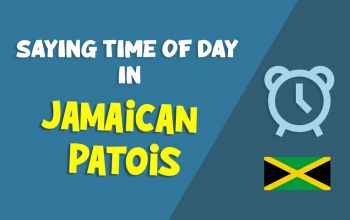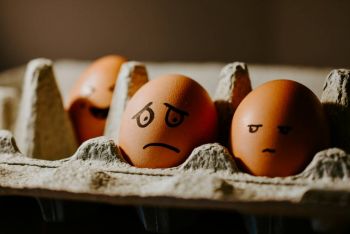Learning Jamaican Patois can be an exciting way to get to know more about Jamaican culture, connect with Jamaican people, and improve your language skills by adding a new language to your linguistic abilities.
Beginner's Guide to Speaking Jamaican Patois
Looking for a quick and easy way to learn Jamaican Patois? Our Beginner's Guide has everything you need to get started;
- Learn correct word pronunciation
- Understand grammar and structure
- Handy everyday phrases
Get Your Copy
In this guide, we will cover the basics of Jamaican Patois, including its pronunciation, grammar, and common phrases. We will also provide tips and resources for learning and practicing your Patois skills.
What languages do Jamaicans speak?
Generally, when most people inquire how to speak like a Jamaican, they usually mean how to speak Jamaican Patois, a creole language spoken by most Jamaicans.
Though English is the official language of Jamaica, the majority of Jamaicans speak Jamaican Patois (Otherwise known as Jamaican Patwah/Patwa), an English-based creole language with West African influences. The non-English words in Patois comes mostly from the West African Akan language.
Jamaican Patois is the native language of most Jamaicans.
Articles to read:
Jamaican greetings and responses
Jamaican patois like other languages, has its own set of greetings and responses. Some common greetings in Jamaican patois include:
| English | Jamaican Patois |
|---|---|
| Wah gwaan | what's going on |
| Weh yuh ah deal wid | What are you up to? |
| Wah deh happen | what's happening |
When meeting someone for the first time, it is customary to greet them with a fist bump and to say "Nice fi meet yuh" (nice to meet you). In response to a greeting, you can say "Mi deh yah" (I'm here), to which the other person may respond "Mi good tuh" (I'm good too) or "Mi a guh gud" (I'm going good). It is also common to use the phrase "How yuh duh" (how are you doing?) as a casual greeting.
Articles to read:
Conversational words and phrases
In Jamaican patois, "dem" and "di" are frequently used as pronouns. "Dem" denotes a group of individuals, whereas "di" is used to refer to a single person.
For example, "dem" might be used in a sentence like "Dem people right deh seh" (those people right there), while "di" might be used in a sentence like "Di man a walk" (the man is walking).
If you want to express that you agree with someone or that something is true, you can use the phrase "dat mek sense," which means "that makes sense." On the other hand, if you want to say that something is not true or doesn't make sense, you can use the phrase "dat nuh mek sense," which means "that doesn't make sense."
Articles to read:
Grammar and vocabulary
Jamaican Patois is a distinct language that has its own grammar that differs from standard English. Its grammatical structure is simpler, with fewer verb tenses and no articles or plural forms. In Patois, there is only one verb form for the present tense, regardless of the number of subjects. This means that the verb "run" would be the same for "I run" and "we run."
Patois is characterized by its own unique pronunciation and rhythm. It is known for its distinct sound, with a strong emphasis on syllables and a distinctive accent.
Articles to read:
Popular Jamaican words and phrases
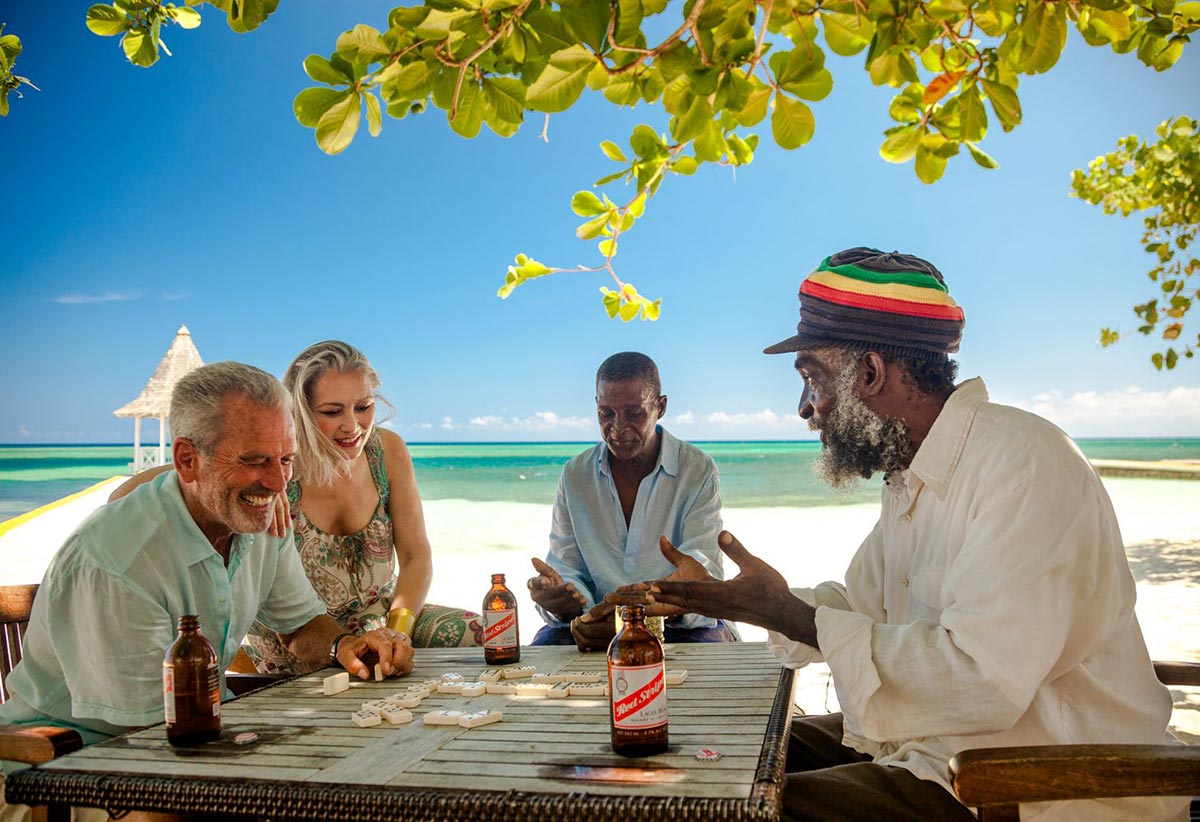 Photo credit: Sandals
Photo credit: Sandals
In this section, we'll explore some of the most popular Jamaican words and phrases. From the laid-back greeting of "wah gwaan" to the all-purpose exclamation of "Irie," these words and phrases are an essential part of Jamaican culture and will help you feel like a local in no time.Here are a few examples:
-
Likkle More
If you ever had a conversation with a Jamaican, you’ve probably heard him utter this phrase at one point or the other. The literal translation of “likkle more” is “little more” but when used as a goodbye expression it means “see you later”.
-
Pree
To take notice or pay close attention someone or something.
-
Irie
Rastafari slang use to describe when one is feeling good; everything is alright.
These are just a few examples of the many unique words and phrases that make up the rich tapestry of Jamaican language and culture. Whether you're a visitor to the island or just want to get a taste of the vibrant local dialect, learning these words and phrases will help you feel like a true Jamaican local. So go ahead and give them a try
Articles to read:
- Top 15 Jamaican Patois words you should know
- Jamaican Proverbs and Sayings
- Popular Rastafarian words and phrases
- Popular Jamaican Curse Words
Conclusion
In conclusion, Jamaican Patois is a rich and vibrant language with a long history and cultural significance. It is spoken by many Jamaicans and Jamaican communities around the world, and is an important part of the Jamaican identity.
While Jamaican Patois has often been stigmatized, there is a growing movement to recognize and celebrate the language as a valuable part of Jamaican culture. If you are interested in learning Patois, a few resources are listed below which includes online courses and dictionaries, and a free patois translator.
Resources
-
Patwah Academy
Join Patwah Academy for free cources on how to speak Jamaican Patois
-
Jamaican Patwah Translator
Translate English phrases to Jamaican Patois with our free
-
Jamaican Patois Dictionary
JamaicanPatwah.com is the leading online source for Jamaican Patois definitions, word origins, and a whole lot more.

